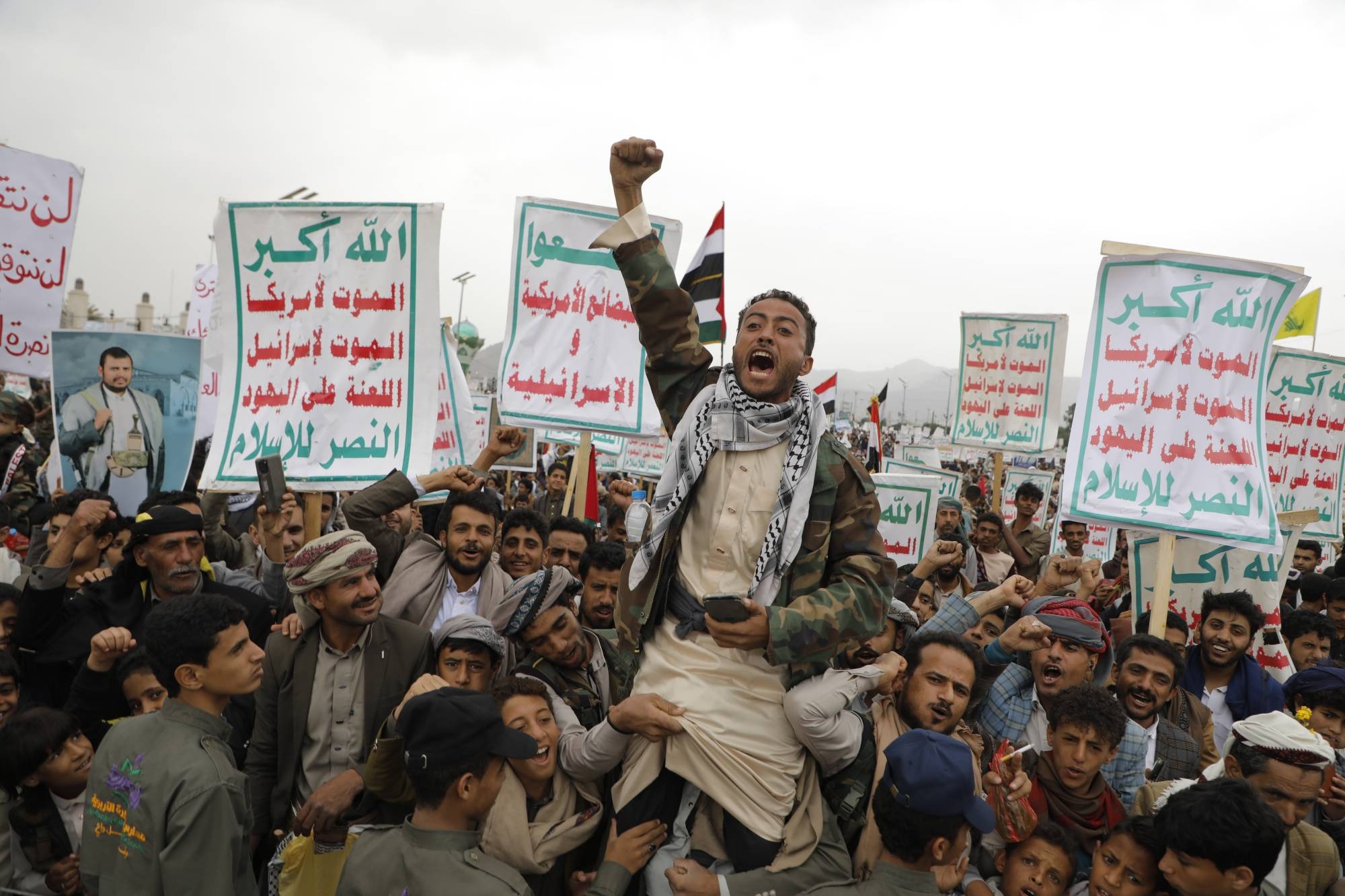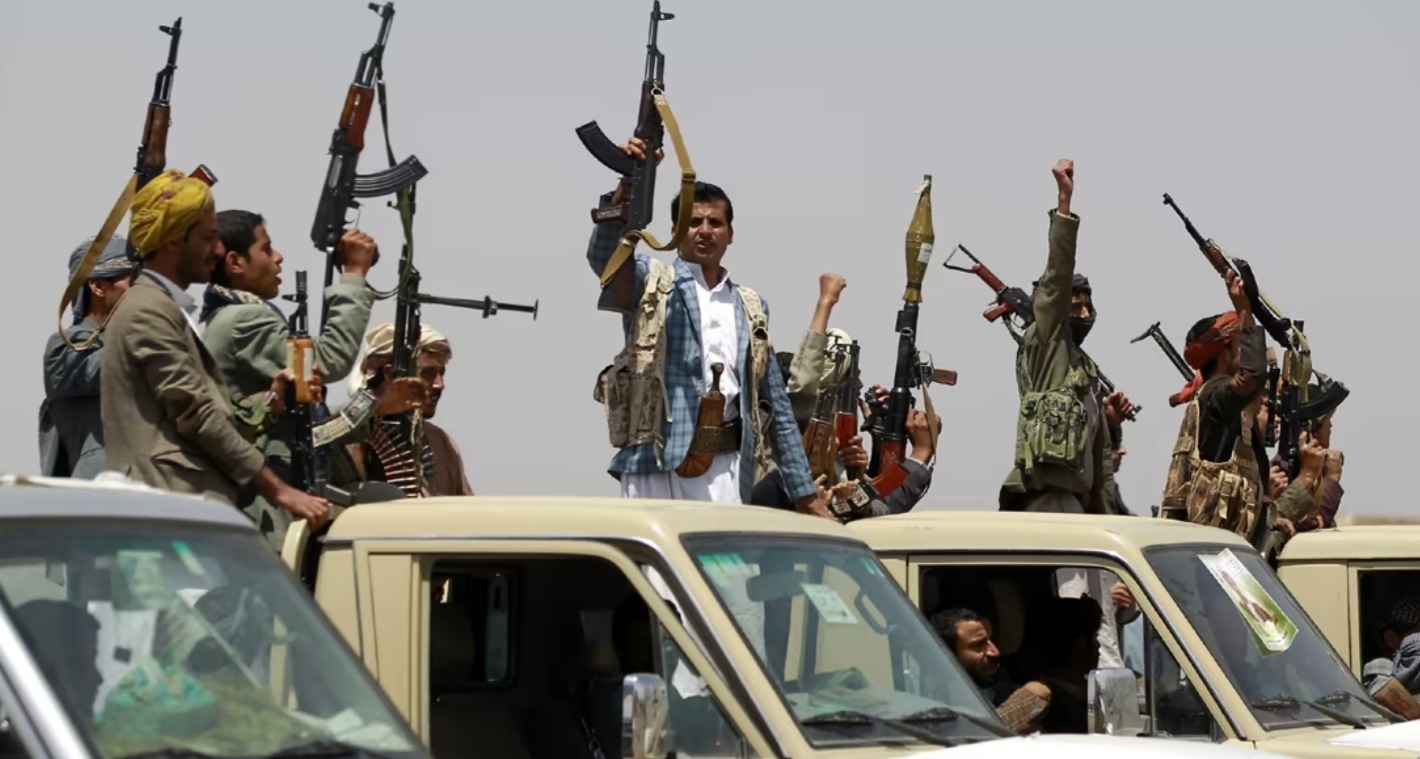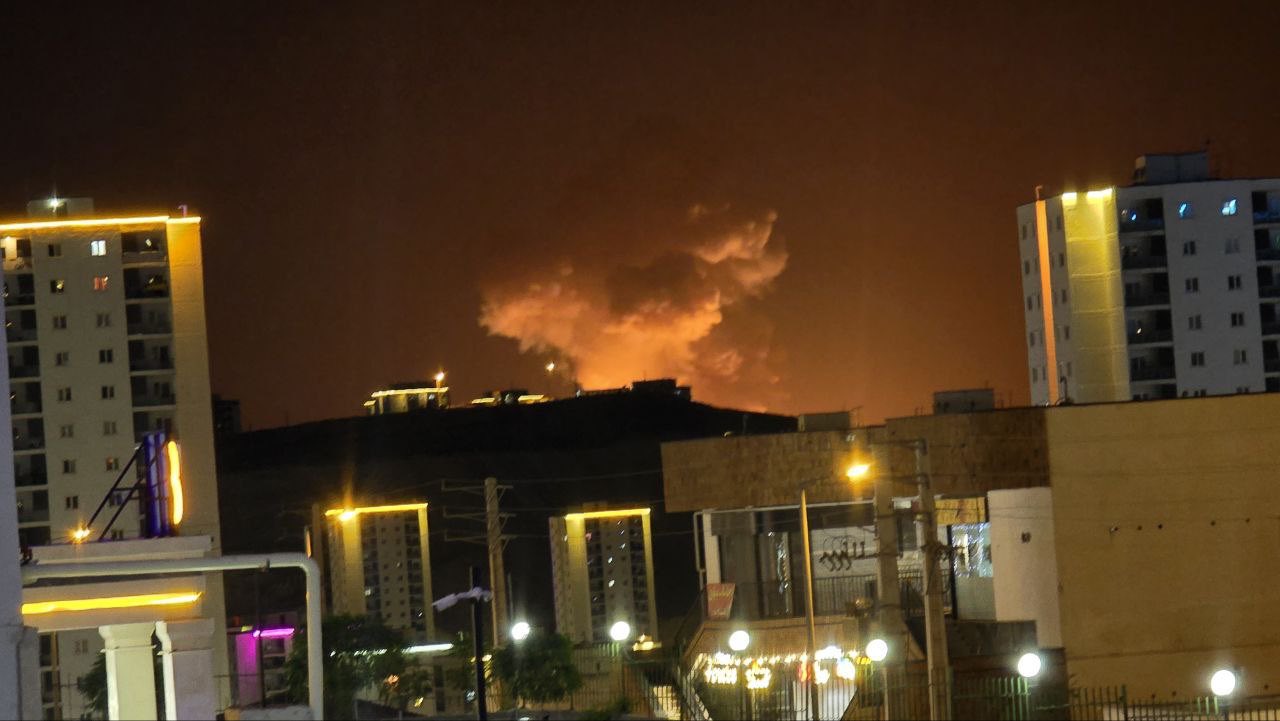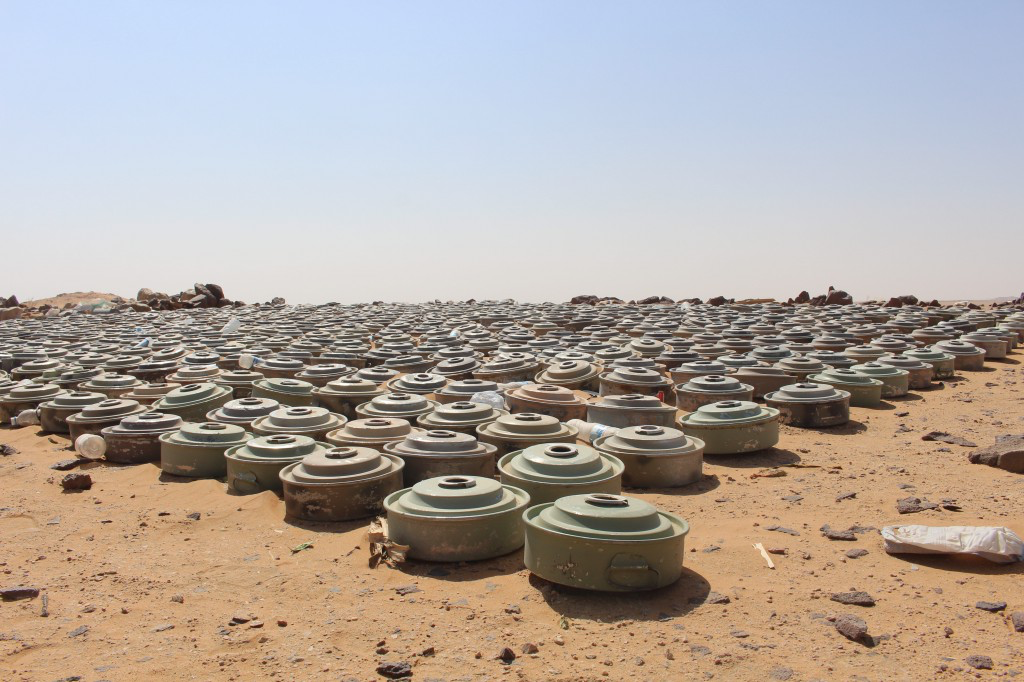
Barran Press
Leaked documents obtained by the P.T.O.C. (Platform for Tracking Organized Crime), a platform specializing in tracking organized crime and money laundering, reveal that six Houthi leaders, designated as terrorists by international organizations, have been tasked with expanding Iranian influence in Africa and controlling international shipping lanes.
The report, reviewed by Barran Press, details a project directly managed by Iran's Revolutionary Guard Corps (IRGC) in coordination with Lebanon's Hezbollah.
The Houthi leaders entrusted with this mission include:
- Abdulwahed Abu Ras: The individual responsible for the Houthi group's external expansion and the Horn of Africa, Abu Ras, also known as "Abu Hussein," is a native of Yemen's Al Jawf Governorate. He was appointed to this role at the direct recommendation of high-ranking Iranian political leaders and IRGC commanders. Abu Ras is responsible for coordinating with IRGC elements and leading the Houthi movement's field operations. He is also directly responsible for securing, importing, and smuggling IRGC and Hezbollah personnel to and from Yemen.
- Hassan Al-Kuhlani: The deputy director of the Houthi intelligence and security apparatus' external operations sector, Al-Kuhlani, known as "Abu Shahid," was born in 1984 in Hajjah Governorate. He is considered a prominent Houthi security leader, having grown up in a Houthi environment in Sa'ada and Sana'a, joining the group at a young age. Al-Kuhlani was part of the "Sana'a terrorist cell" that carried out several bombings and assassinations following the death of the group's founder, Hussein al-Houthi, in 2004. He was also a leader in the group that entered Sana'a in September 2014 and commanded the group that issued an order to prevent a US aircraft from taking off from Sana'a airport, citing the need for inspection before departure. Following this incident, his father was assassinated in October 2014 by unidentified gunmen on a motorcycle in Sana'a. Al-Kuhlani currently operates under the supervision of Abdulwahed Abu Ras and is known for his close ties to the IRGC. He is attempting to establish himself as the leading figure in the Houthi intelligence and security apparatus, leading to conflict with the head of the apparatus, Abdul Hakim Al-Khaiwani.
- Abdul Hakim Al-Khaiwani: The head of the Houthi National Security Apparatus.
- Hassan Al-Marrani: A prominent Houthi leader.
- Abu Haidar Al-Qahoum: A prominent Houthi leader.
- Hussein Al-Azzi: The deputy foreign minister in the Houthi government. Al-Azzi works through diplomatic channels and individuals connected to him in Ethiopia, Eritrea, Djibouti, Sudan, and Kenya. He is establishing intelligence, security, political, and logistical relationships with individuals and elements close to the Houthi group in these countries, working to recruit as many diplomats as possible in Yemeni embassies in those countries.
The report also highlights the role of Adham Hamid Abdullah Al-Ofari (Abu Khalil), who specializes in working with African communities in Yemen, particularly in Sana'a. He is tasked with maintaining constant communication and coordination with the leaders of these communities (Ethiopian, Somali, Eritrean, Sudanese, and Djiboutian). Al-Ofari works to mobilize African elements and enroll them in military and cultural training programs. They are then deployed to various fronts (Western Coast, Marib, borders, Taiz), and assigned to intelligence missions within their respective countries. He is also responsible for coordinating with Houthi security checkpoints to allow African elements to enter Houthi-controlled areas and oversees the disbursement of financial allocations to these elements.
Another key figure is Osama Hassan Ahmed Al-Makhdhi (Abu Shahid), a Houthi operative in the intelligence and security apparatus, focusing on the African track. His responsibilities include coordinating with influential African figures in Somalia, Ethiopia, Eritrea, Djibouti, and Sudan to mobilize, train, and qualify them for inclusion in the Houthi militia ranks. These individuals are recruited as fighters, workers in their countries of origin, and intelligence operatives tasked with spreading Houthi ideology, conducting intelligence operations, smuggling weapons, trafficking humans, and transporting drugs by sea to and from the Horn of Africa and Yemen.
The report also reveals the Houthi objective of preparing and equipping elements and individuals with whom they have established relationships in Africa to "carry out actions, movements, and activities in the Red Sea and the Horn of Africa to support the Houthis in case they face any political, diplomatic, or international external pressure."
The report includes the names of 16 African individuals who are key collaborators with the Houthi group in its expansion into the Horn of Africa. These include Taju Sharif, responsible for the Ethiopian community in Sana'a, who has attended Houthi cultural training programs and works to recruit and mobilize African elements for Houthi military and intelligence operations.
This report sheds light on the complex network of individuals and organizations involved in the Houthi group's expansion into Africa, highlighting the potential for instability and conflict in the region.





